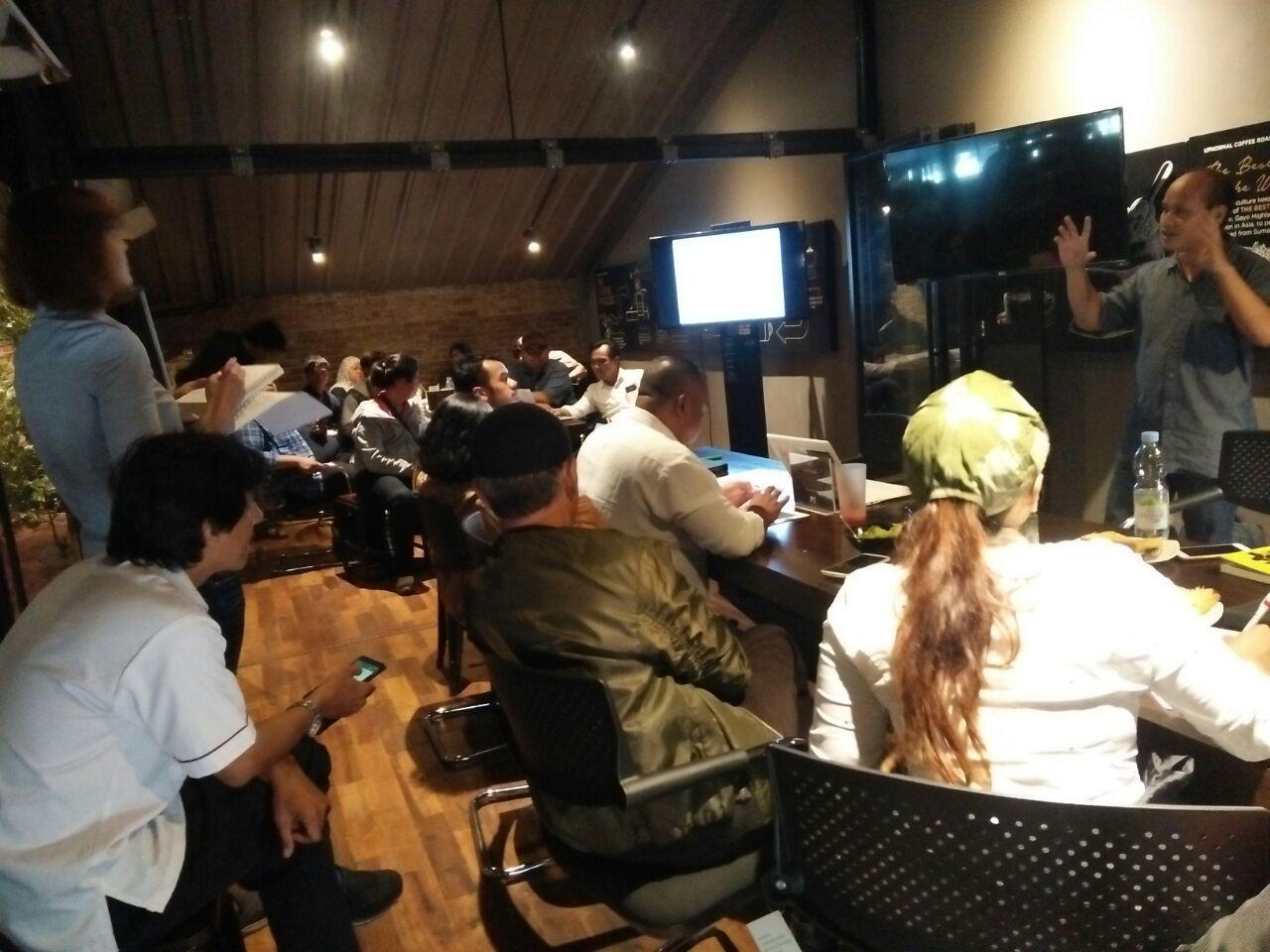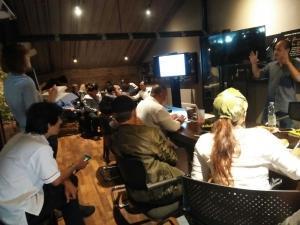24 January 2018 7 menit
Press Release: Indigenous Community files complaint against the RSPO at the OECD

 Jakarta, January 24, 2018 – The Dayak Hibun Indigenous People from Kerunang hamlet and Entapang hamlet, Bonti Subdistrict in the Sanggau District in West Kalimantan, today filed a complaint against the Roundtable on Sustainable Palm Oil (RSPO) under the OECD’s special complaint mechanism. The community filed its complaint through the OECD’s National Contact Point (NCP) in Switzerland, as the RSPO is legally registered in that country.
Jakarta, January 24, 2018 – The Dayak Hibun Indigenous People from Kerunang hamlet and Entapang hamlet, Bonti Subdistrict in the Sanggau District in West Kalimantan, today filed a complaint against the Roundtable on Sustainable Palm Oil (RSPO) under the OECD’s special complaint mechanism. The community filed its complaint through the OECD’s National Contact Point (NCP) in Switzerland, as the RSPO is legally registered in that country.
The Organization for Economic Cooperation and Development (OECD) is an intergovernmental economic organization, with the aim of promoting economic development and cooperation. Its’ members are mostly developed countries. As a way to promote fair and sustainable development that guarantees the protection of human and environmental rights, the OECD has published the OECD Guidelines on Multinational Enterprises. These Guidelines are the only multilaterally agreed and comprehensive code of responsible business conduct that governments have committed to promoting.
The community is of the opinion that the RSPO has failed to comply with the RSPO’s own rules and procedures, and that as a result of these failures, the RSPO has failed to protect the community’s rights and it has failed to comply with the OECD Guidelines on Multinational Enterprises.
The community declares that the RSPO has failed to comply with Chapter IV (3) of the OECD Guidelines, which is to “seek ways to prevent or mitigate adverse human rights impacts that are directly linked to their business operations, products or services by a business relationship, even if they do not contribute to those impacts”; and it has failed to comply with Chapter IV (5) to “carry out human rights due diligence as appropriate to [its] size, the nature and context of [its] operations and the severity of the risks of adverse human rights impacts”.
The conflict that originated this complaint is caused by PT Mitra Austral Sejahtera (“PT MAS”), a wholly owned subsidiary of a Malaysian Multinational palm oil Company called Sime Darby Berhad (“Sime Darby”), who is a founding member of the RSPO. The communities accuse PT MAS and Sime Darby from unlawfully excluding the community from 1,462ha of their customary land. As a result, the community has had their fundamental human rights denied.
The RSPO is a multi-stakeholder forum for the production of sustainable palm oil. It is registered in Switzerland and therefore legally bound to the OECD Guidelines on Multinational Enterprises. According to the RSPO standards, the production of sustainable palm oil includes respecting human rights, customary rights and other rights and comply with Free, Prior and Informed Consent Procedures. The RSPO’s Principles and Criteria document for palm oil producing companies, states in criteria 6.13 that “A policy to respect human rights shall be documented and communicated to all levels of the workforce and operation.
”
Since 2007, Sime Darby and PT MAS have failed to comply with Criteria 2.1, which is to provide evidence of compliance with relevant legal requirements. It has also failed to comply with Criteria 2.2, which is to demonstrate that the right to use the land is not legitimately contested by local people who can demonstrate that they have legal, customary or user rights over it. This is not the case, as the communities of Kerunang hamlet and Entapang hamlet claim their customary land, which is being used by PT MAS. Furthermore, the company has not adopted and implemented a conflict resolution process acceptable and agreed by the Community to resolve “land conflicts” (Criterion 2.2.4); it has failed to obtain Community FPIC (Criterion 2.3); and it has failed to provide evidence that a plan has been developed through consultation and discussion with all affected groups in the communities, it has failed to inform the communities about the legal implications of their use of the disputed land and in particular they failed to inform the communities on the implications of the legal status of community land upon the expiration of the concession or corporate HGU (Criterion 2.3 .2 (c)).
In October 2012, the community submitted a complaint to the RSPO regarding land conflicts involving PT Mitra Austral Sejahtera, a subsidiary of Sime Darby Plantation. The complaint contained 14 demands related to land rights, partnership issues and company promises. In the complaint, the community proposed a roadmap to solve the community’s demands. The first step was that the RSPO Complaints Panel should decide that Sime Darby Plantation should return the community land. Secondly, the Dispute Settlement Facility (DSF) should facilitate a dialogue to solve partnership issues, corporate promises and smallholder (plasma) production rearrangements.
Unfortunately, until 2017 the RSPO Complaints Panel has not responded and has not succeeded in making a written decision regarding the community demand. The Dispute Settlement Facility did not succeed in solving the community problems either. The community is disappointed and frustrated by the RSPO’s handling of their complaint and the lack of action to solve the conflict with PT MAS, a subsidiary of Sime Darby Plantation, a member of the RSPO.
The communities and TuK INDONESIA see that Chapter IV (3) of the OECD Guidelines clearly applies to the RSPO with the following considerations:
First, the issue or refusal of certificates is a “business operation”. So is the operation of a complaints mechanism;
Secondly, the issue of a certificate to a member despite its failure to respect the human rights of a community affected by its project will be “directly linked” to an adverse human rights impact on the community, because it will encourage the member to think that it can ignore those rights without risk of sanction; if it is still able to sell certified product, its incentive to prevent or mitigate an adverse impact will largely disappear. A failure to operate the complaints mechanism properly will have a very similar effect as long as the failure persists.
Thirdly, by the same token if the RSPO fails to suspend or withdraw the certificate of a non-compliant member until it mends its ways, or to investigate a community complaint in a proper and timely manner, it fails to “seek a way to mitigate” the adverse impact of the member’s conduct.;
Fourthly, the RSPO is clearly in a “business relationship” with Sime Darby, a member which has agreed to pay and to abide by the RSPO rules in exchange for the benefits of membership.
The community has formulated a “Proposal for Solution” for Sime Darby Plantation. The proposal contains steps to return the customary land to the communities of Kerunang and Entapang. Unfortunately, the RSPO has failed to assist and convince Sime Darby Plantation to accept the offer of community solutions.
The community is ready to submit solutions to the Swiss NCP on how the RSPO should implement responsible, sustainable and equitable human rights mechanisms.
As a member of the OECD, the Swiss National Contact Point can facilitate, assist communities and the RSPO to restore the rights of Dayak Hibun indigenous peoples from Kerunang and Entapang hamlets, in accordance with the spirit of the United Nations Guide on Business and Human Rights and the OECD Guidance on Multinational Enterprises .
The community believes the Swiss NCP is committed, professional and accountable in formulating best practices of human rights remedial measures in the implementation and advancement of the OECD Guidelines policy and in harmony with the spirit of sustainable development and Human Rights.
Media Contact:
Redatus Musa +62 81380663822, Head of Dusun Entapang Community
Edisutrisno +62 81315849153, Deputy Director, TuK INDONESIA
Rini Kusnadi +62 82260152595, Media Relation Officer, TuK INDONESIA
